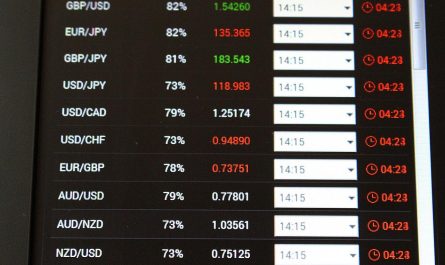On Monday, UK mid-caps declined to a low of three weeks, while the export-focused FTSE 100 also came down from its recent peaks.
This was because of concerns about the aggressive increases in the interest rates by major global central banks, which could result in a slowing global economy.
The FTSE 250 falls
There was a 1.3% drop in the FTSE 250 index, which is domestically-focused, and this saw it come down to its lowest level since July 28th.
The mood was weighed down due to a combination of factors, which included rising energy prices, hawkish signals from numerous central banks, and a protest of the workers of Britain’s container port for 8 days.
The cost of buying goods would increase because of the port strikes, which would exacerbate inflation and also result in supply problems, which are not good for the economy.
Amongst midcaps, the biggest blows were dealt to industrials, airlines, retailers, and homebuilders. There was a 7.7% drop in Wizz Air, as the budget carrier in Europe said that its finance chief was stepping down.
The company said that he would pursue other opportunities outside the company.
Recession concerns
Last week, data showed that inflation in Britain rose to more than 10%, while wages were lagging far behind rising prices.
Moreover, consumer confidence also dropped to a record low, which showed an increasing momentum in the slide of the British economy towards a recession.
The Bank of England (BoE) has already warned of a contraction from the end of the year, which it expects to last for 15 months.
Investors were also worried ahead of the symposium of the US Federal Reserve in Jackson Hole, Wyoming on Friday.
A number of policymakers of the Fed have recently pushed back against a dovish pivot because of peaking inflation.
FTSE 100 falls
There was a 0.8% drop in the blue-chip UK FTSE 100 index, which saw it come down from a high of 10 weeks that it had reached in the previous week.
There was a 1% drop in each of the oil majors i.e. BP and Shell, as crude prices dropped over worries about a decline in fuel demand amidst a weakening economic outlook globally.
There was also an 8.1% rise in Cineworld after the company tumbled almost 60% on Friday to a record low.
This was after the second-largest cinema operator in the world disclosed that it was considering different options, which included possibly filing for bankruptcy in the US.
Market experts said that the slope looked pretty steady for Cineworld at this point and the news was not really a surprise, given that the debt load of the company is quite high.
Meanwhile, things were not looking well for the British currency either, particularly with the US dollar strengthening.
The greenback continued to get support from the possibility of the US Federal Reserve hiking interest rates yet again in the next month.
As for the Sterling, the cost of living crisis in Britain and the extended strikes in the country weighed down the currency.















